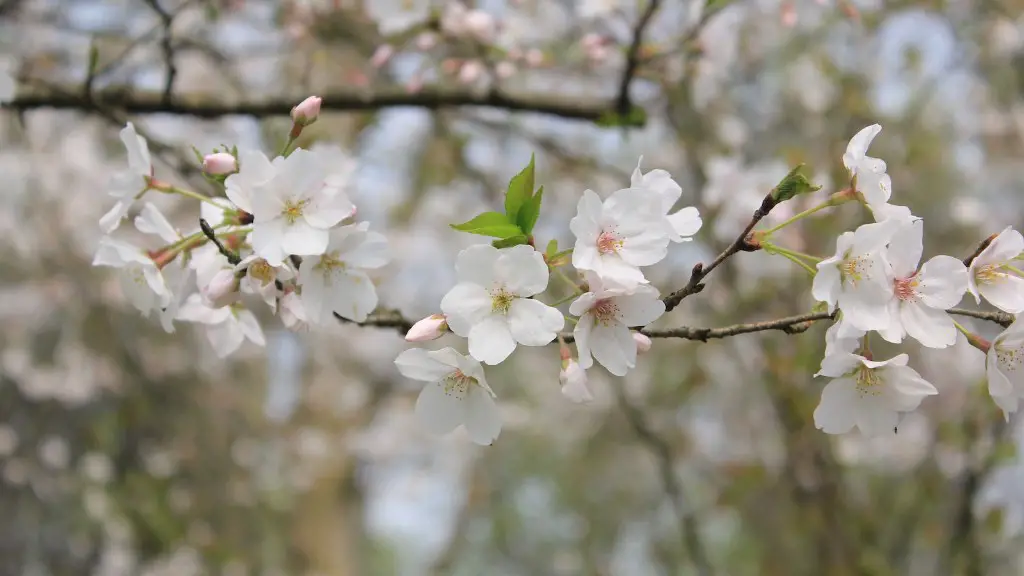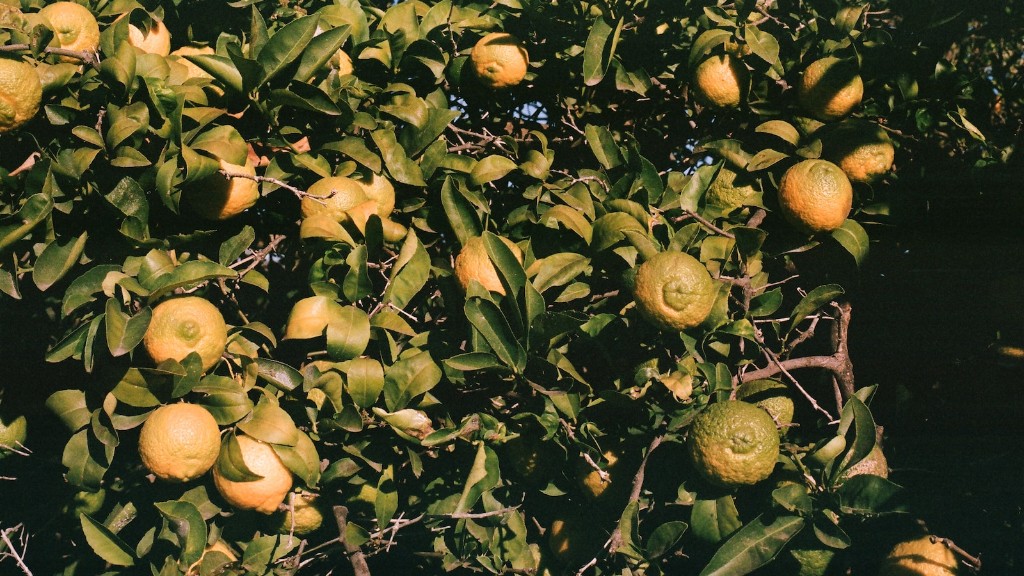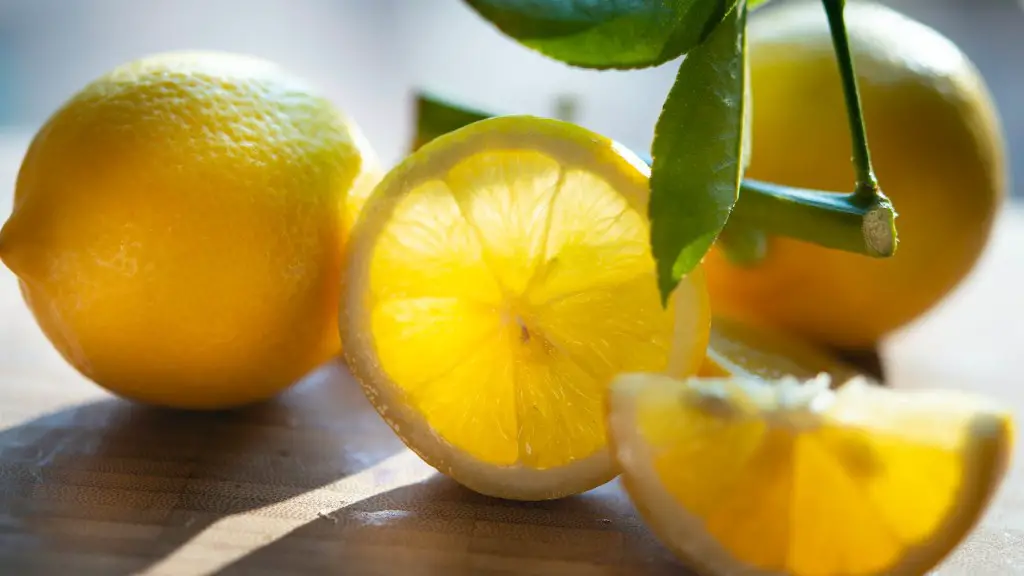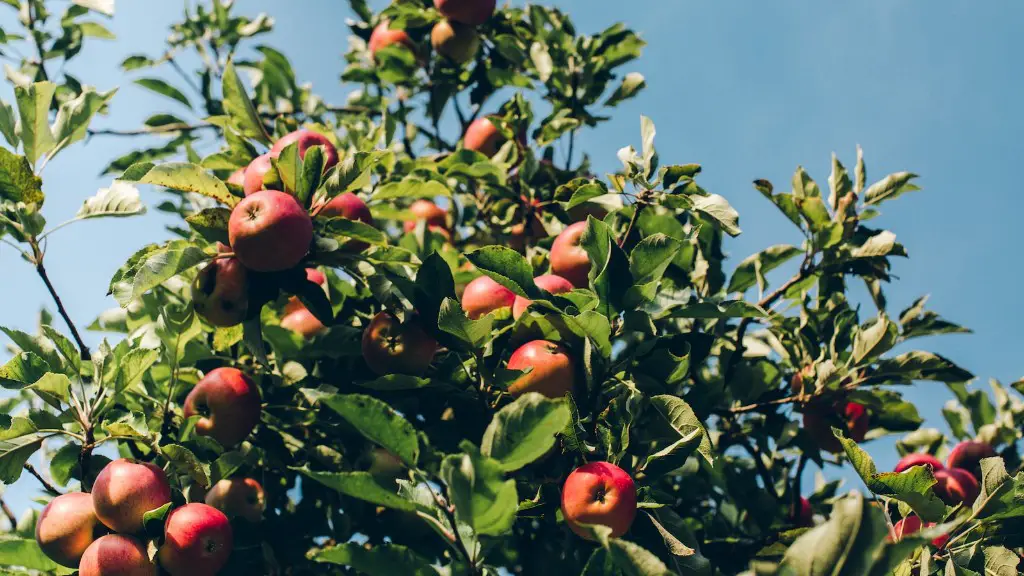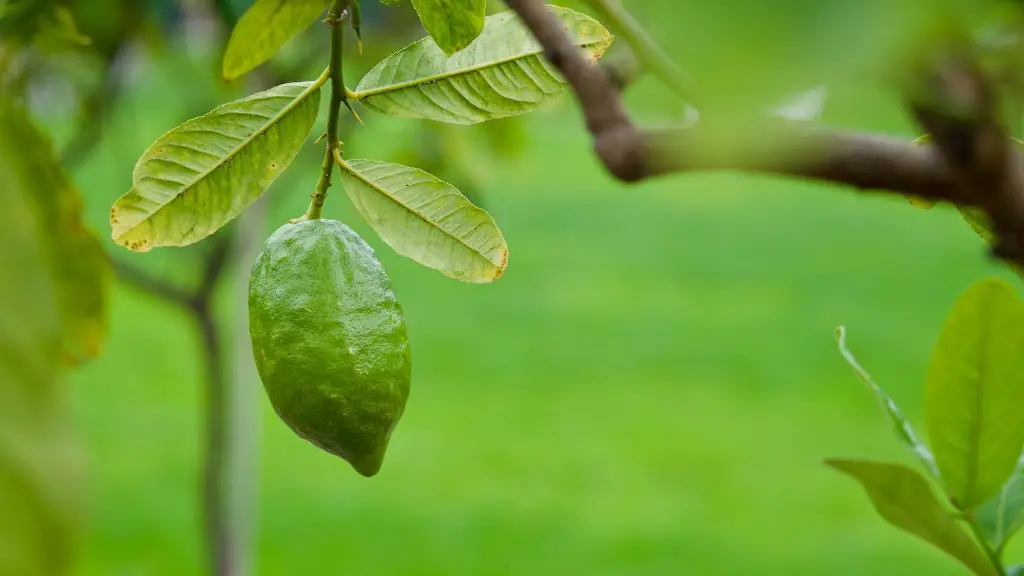The question of how long for a cherry tree to produce fruit is an interesting one that many people ask. The answer depends on several factors, including how much you allow the tree to mature, the type of variety you’re growing and the climate. In general it can take up to four or five years for a cherry tree to produce much fruit.
When you first buy or plant a cherry tree, it will take between one and two years before it begins to produce any fruit. During this time the tree must put its energy into getting its root system established and growing healthy leaves. The best soil for a cherry tree is well-drained and the tree should receive plenty of sunlight and water.
Next, the tree should enter a period of active growth with plenty of new shoots and leaves. This is when it will enter its second growing year and will start to produce flowers. During its third growing year, the tree will start to set fruits from the flowers and your tree should produce a decent crop by year four.
It’s important to note, however, that this timeline of four to five years in which the cherry tree produces fruit is an estimate only. Depending on a variety of factors, some cherry trees will produce fruit sooner or later. The type of variety you’re planting or buying, for example, can influence the speed at which your cherry tree produces fruit. Some cherry trees are self-fertilizing, meaning they won’t need bees to help them produce fruit, but others won’t produce much fruit without bee pollination. The climate in which your tree is planted will also have an effect on its ability to produce fruit.
The experts at the Royal Horticultural Society suggest keeping an eye on your cherry tree through the summer months and pruning it regularly. Pruning your cherry tree will help maintain its health while encouraging new growth and blooms. Pruning should be done in late winter when the tree is dormant.
Cherry trees are a rewarding crop to have in your garden and once your cherry tree produces fruit, it can easily become a family favourite for summer snacks and pies. With a bit of care and knowledge, a cherry tree can thrive in almost any landscape, making it an excellent choice for home gardeners.
Cherry tree care
Just like with any other tree, cherry trees require special care to thrive and produce fruit. First, they require full sun and fertile, slightly acidic soil, so make sure your tree is planted in a spot where it will receive plenty of sunlight throughout the day. Making sure your tree is water properly is also essential.
The next important step for cherry tree care is fertilization. If you want your tree to produce lots of delicious cherries, it will need regular feeding. Applying organic compost twice a year – once in the spring and once in the summer is a good way to give the tree the nutrient it needs to produce healthy fruit.
Finally, your cherry tree may need protection from disease or pests. The most common pests are birds and other wildlife, such as squirrels and raccoons, that can eat your ripening fruit. If your cherry tree does get infested with pests, there are many safe and effective options available to get rid of them.
Organic Growing Tips
Organic growing is an excellent way to get the most out of your cherry tree. When growing organically, you’ll need to do without toxic chemical pesticides and fertilizers. Instead, you’ll have to use natural methods to keep pests and diseases away, such as companion-planting, mulching and trap-cropping.
Organic gardening also encourages you to use natural soil amendments to give your tree the nutrients it needs. Compost and other organic matter, such as manure or seaweed-based fertilizers, are excellent choices. It’s also important to keep your soil aerated by digging or tilling it.
By following these simple tips, you can ensure a long and fruitful life for your cherry tree. The end result will be a healthy tree that produces an abundant supply of cherries for years to come.
Harvesting Cherries
When the time comes to harvest your cherries, it’s important to be careful. Check your cherries regularly and harvest them when they are ripe and slightly soft. The best way to tell if a cherry is ripe is to gently squeeze it; it should be firm but slightly soft. Don’t let the cherries over-ripen, as they can get sour and won’t be enjoyable to eat.
Cherries can be harvested with a cherry picker or a picking pole, or even by hand. Just make sure you don’t damage the branches or leaves when picking the fruit, as this could cause the tree to stop flowering or reduce its production of fruit in the future.
Harvesting your cherry tree’s fruit is an exciting and fulfilling experience. While it may take a few seasons for your tree to produce a good harvest, the reward of your own sweet, delicious, home-grown cherries will be worth the wait.
Storing Cherries
Once you’ve harvested your cherries, it’s important to store them properly. Unless you plan to eat them right away, cherries should be stored at temperatures between 32°F and 41°F. The best way to store them is in the refrigerator, where they will last up to two weeks.
You can also freeze your cherries to extend their shelf life. Just make sure to use an air-tight container or freezer bag, as this will help protect the cherries from dehydration and freezer burn. Frozen cherries will last up to one year in the freezer.
Cherries can also be dried or made into preserves or jams. Just make sure to use canning jars and proper canning techniques when preserving your cherries, as this will help them remain safe to eat for longer periods of time.
Enjoying Cherries
Cherries make an excellent snack or dessert and can be enjoyed many different ways. Fresh cherries are delicious eaten alone or used in recipes, such as pies, cakes and tarts. Dried cherries make a great topper for various dishes, such as salads and oatmeal, and are an excellent alternative to raisins or other dried fruits.
Cherries also provide a variety of health benefits, making them a great addition to your diet. They are high in vitamins A, C, E and K, as well as essential minerals like calcium, magnesium and phosphorus. Cherries are also low in calories and fat, and are packed with antioxidants, making them a nutritious snack.
Whether you’re enjoying them straight from the tree or using them in recipes, cherries can be a healthy and delicious addition to your diet. With a bit of knowledge and patience, your cherry tree will eventually produce a valuable crop that is sure to bring delight to you and your family.
